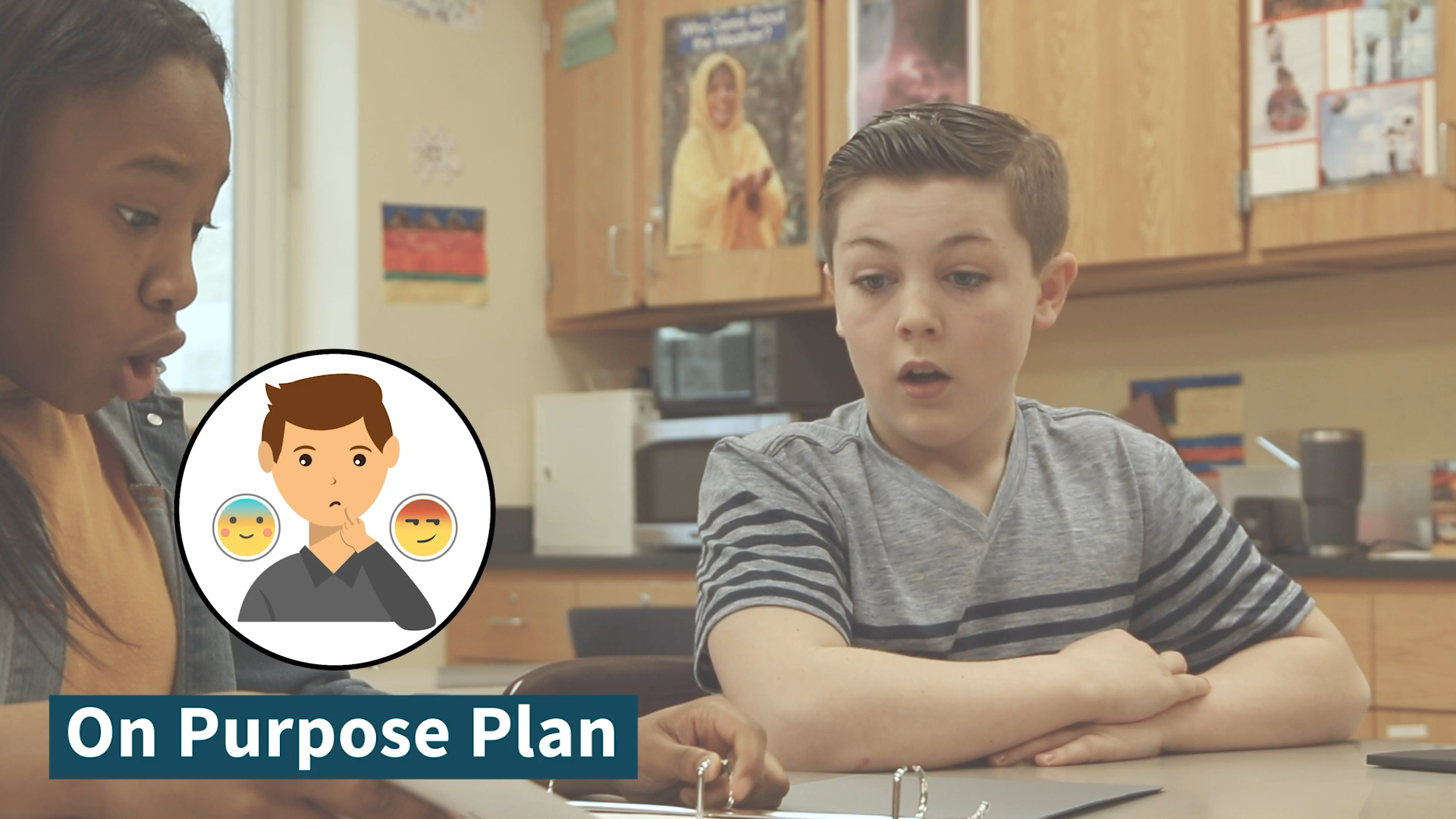
In this blog post, we will explore the On Purpose Plan, a social-emotional learning approach that helps students understand the intentions behind actions and improve social interactions. This strategy can be particularly helpful when it’s hard to tell if something happened by accident or was done on purpose.
Introduction
The On Purpose Plan is a simple, yet powerful tool that teaches students to analyze the intentions behind actions by observing the other person’s reactions, facial expressions, tone of voice, and actions. By understanding whether an action was intentional or accidental, students can manage their emotions and interactions more effectively, fostering a positive learning environment.
No-Prep Activity
This activity, called “Intention Detective,” requires no preparation or materials from the educator and can be easily incorporated into any classroom setting.
- Divide students into pairs.
- Ask one student in each pair to think of a scenario where something happens (e.g., spilling water, breaking a pencil).
- Have the student act out the scenario in two ways: once as if it happened accidentally and once as if it was done on purpose.
- The other student in the pair must observe their partner’s reactions, facial expressions, tone of voice, and actions to determine if the action was done on purpose or accidentally.
- Afterward, have the students switch roles and repeat the activity.
- Conclude the activity by discussing the importance of understanding intentions behind actions and how it can impact our emotions and interactions with others.
Discussion Questions
- Why is it important to understand the intentions behind actions in social situations?
- How can observing someone’s reactions, facial expressions, tone of voice, and actions help us determine if an action was done on purpose or accidentally?
- How does knowing whether an action was intentional or accidental affect our emotions and the way we interact with others?
- Can you think of a time when you misinterpreted someone’s intentions? How did it affect your emotions and relationship with that person?
- How can we practice using the On Purpose Plan in our daily lives to improve our social-emotional skills?
Related Skills
The On Purpose Plan is just one of many social-emotional learning strategies that can help students develop essential life skills. Other related skills include:
- Empathy: Understanding and sharing the feelings of others.
- Active listening: Paying close attention to what someone is saying and responding thoughtfully.
- Conflict resolution: Identifying and resolving disagreements in a constructive manner.
- Assertiveness: Expressing thoughts and feelings in a respectful and confident way.
- Emotion regulation: Managing emotions effectively in various situations.
Next Steps
If you’re interested in incorporating the On Purpose Plan and other social-emotional learning strategies into your teaching, we invite you to sign up for free samples of these valuable resources at Everyday Speech. By integrating these techniques into your classroom, you can help students build a strong foundation for success in their personal and academic lives.

